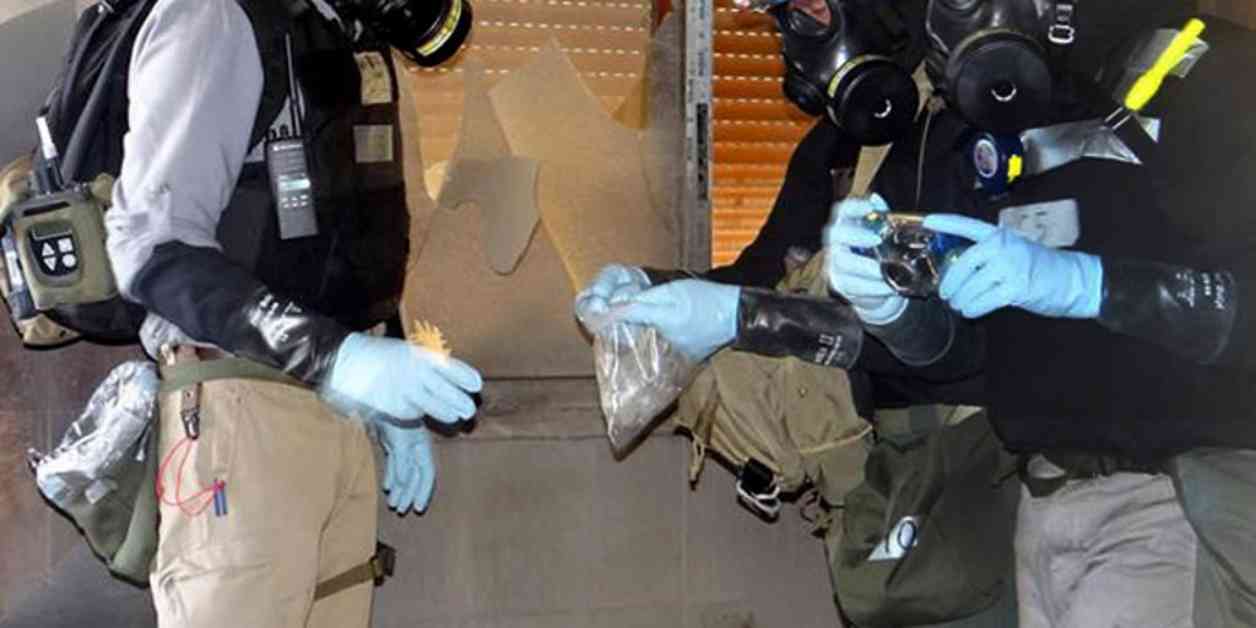Syria’s Chemical Weapons: The Looming Threat Unveiled
The Syrian regime of Bashar al-Assad may have crumbled, but the shadow of his reign still looms large over the region with an unaccounted stockpile of chemical weapons raising concerns among international bodies. The Organization for the Prohibition of Chemical Weapons (OPCW) is closely monitoring the situation in Syria, particularly the status of these weapons, as the world navigates the aftermath of Assad’s brutal dictatorship.
Concerns Raised by UN Official
Izumi Nakamitsu, the U.N. high representative for Disarmament Affairs, expressed extreme worry over the reported destruction of large quantities of chemical weapons by Syria that remain unverified. This uncertainty surrounding the fate of these weapons poses a significant risk to global security, prompting international efforts to address the issue.
US Stance on Accountability
Secretary of State Antony Blinken announced the U.S.’s commitment to supporting efforts to hold the Assad regime accountable for its atrocities, including the use of chemical weapons against Syrian civilians. The lack of clarity regarding the specific chemical weapons remaining in Syria post-regime collapse further complicates the situation.
Unanswered Questions and Proliferation Risks
Despite Syria joining the Chemical Weapons Convention in 2013 and agreeing to destroy over 1,300 tons of chemical warfare material in 2014, serious concerns persist about the completeness of Syria’s initial declaration and the whereabouts of significant amounts of these weapons. U.S. Ambassador to the OPCW Nicole Shampaine emphasized the risk of these undeclared weapons falling into the wrong hands, especially terrorist groups like ISIS.
The Role of Rebel Groups
Rebel group Hayat Tahrir al-Sham (HTS), instrumental in overthrowing Assad’s regime, has pledged not to utilize any remaining chemical weapons and has committed to safeguarding the sites while cooperating with the international community for monitoring. However, doubts linger about the reliability of assurances from a group with past terrorist affiliations.
Calls for Action
Experts advocate for immediate action to eliminate any known Syrian chemical weapons capabilities to prevent potential terrorist attacks worldwide. The urgency of securing these weapons underscores the need for international cooperation and decisive measures to prevent further proliferation risks.
The Legacy of Chemical Attacks
The devastating impact of chemical attacks on innocent Syrians during the civil war, including the infamous Ghouta attack in 2013, serves as a grim reminder of the horrors unleashed by Assad’s regime. The OPCW’s findings of multiple instances of chemical weapon usage underscore the urgent need for accountability and prevention of future atrocities.
Conclusion
As the world grapples with the aftermath of Assad’s rule, the unresolved issue of Syria’s chemical weapons poses a formidable challenge that demands swift and decisive action to safeguard global security and prevent further humanitarian crises. The stakes are high, and the international community must remain vigilant in addressing this critical threat to ensure a safer future for all.





















